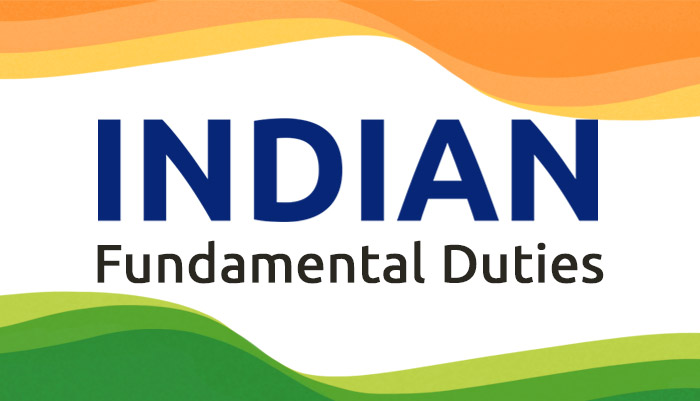
1. The Fundamental Duties were added to the Indian Constitution by which Constitutional Amendment?
a) 42nd Amendment Act, 1976
b) 44th Amendment Act, 1978
c) 61st Amendment Act, 1989
d) 73rd Amendment Act, 1992
Answer: a) 42nd Amendment Act, 1976
2. How many Fundamental Duties are currently listed under the Indian Constitution?
a) 9
b) 10
c) 11
d) 12
Answer: c) 11
3. Which Article of the Indian Constitution contains the Fundamental Duties?
a) Article 32
b) Article 39A
c) Article 51A
d) Article 48
Answer: c) Article 51A
4. Which of the following is a Fundamental Duty of every Indian citizen?
a) To promote harmony and the spirit of common brotherhood
b) To vote in elections
c) To pay taxes
d) To take up arms in defence of the country
Answer: a) To promote harmony and the spirit of common brotherhood
5. The 11th Fundamental Duty, added by the 86th Constitutional Amendment Act, 2002, relates to:
a) Protecting the environment
b) Safeguarding public property
c) Providing opportunities for education
d) Developing a scientific temper
Answer: c) Providing opportunities for education
6. Which of the following is not included as a Fundamental Duty in the Indian Constitution?
a) To defend the country and render national service
b) To develop the scientific temper, humanism, and spirit of inquiry
c) To respect the National Flag and the National Anthem
d) Right to constitutional remedies
Answer: d) Right to constitutional remedies
7. The Fundamental Duties in the Indian Constitution were inspired by the Constitution of which country?
a) United States of America
b) United Kingdom
c) Russia (Former Soviet Union)
d) France
Answer: c) Russia (Former Soviet Union)
